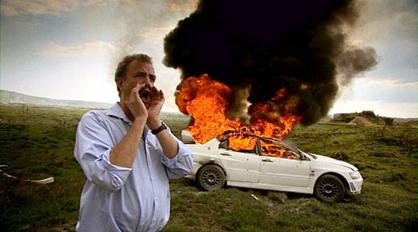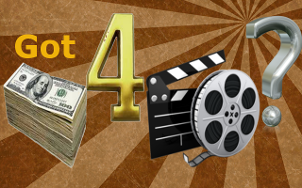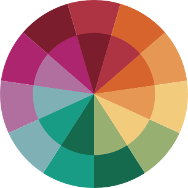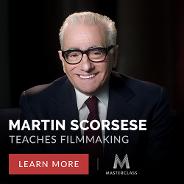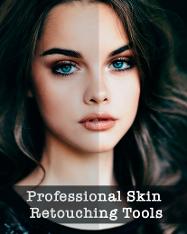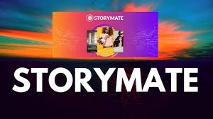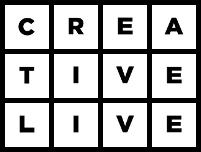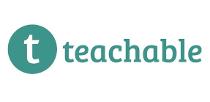Filming Basic Scene Coverage for Narrative Media
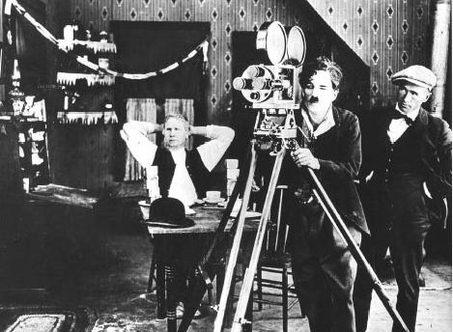
Free Filmmaking education, tutorial, learning, Directing, Director, Cinematography, Director of Photography, Directing Film, Narrative Film Making, Shooting a Scene, Blocking a scene for Film, Film Production, Film Maker, Indie Film,
Shooting Narrative & 'Basic / Traditional Scene Coverage'
Cinematography, What is Basic (or Traditional) Scene Coverage in Narrative Film & Television shooting?
What makes shots or films look 'Cinematic'? Is it Frame rate? Shutter angle, Codec?
How do new filmmakers shoot 'better looking' films?
& What's the best way to shoot ( _________ ) ?
Pretty common questions when someone is starting to make films,
& we've heard a lot of technical answers, but maybe the 'truest' is often left unmentioned.
Basic Coverage, occasionally called Traditional Scene Coverage.
Basic Coverage is 1/2 visual language of storytelling, & 1/2 shooting process on location.
One of the most prominent 'errors' in a new film makers work is lack of quality coverage.
Shots don't match, sizes & frame lines are inconsistent,
It cuts together kind of 'funky' looking, maybe 'amateurish',
& it takes a trained eye to explain why,
but the audience still know it's off.
Yea, that's inconsistent shooting & not accomplishing what is referred to as
Basic Scene Coverage.
I'll tell you a funny story,
I had already worked as a Production Assistant in the TV production industry for a year before I learned what 'Basic Coverage' is.
I had been introduced to 'blocking' before in school, theoretically knew what 'Scene Coverage' was, & had even shot 10 years worth of shorts,
but I had never heard the term 'basic coverage' before.
My first A.D. was explaining the afternoon, saying we'll move onto 'Basic Coverage' for the next scene,
& I asked 'What's Basic Coverage?'
After realizing I wasn't joking, he replied 'Basic coverage is what we do on Every Scene we ever shoot here (which I had actually done 100+ times now)
& then he explained even further,
We start wide & light it all, get the beginning 'Intro/Entrance'. Get most of the middle with importance on characters Moving, or Dynamic Elements, & then also the Exit of characters at the end.
Then we move lights & camera in to shoot all the close stuff (Medium, Single & Closeups),
Then we 'Turn Around' & relight for the 'reverse' on the other character, & get those (Medium, Single & Close Ups)
What a revelation. I'd seen it 100 times & even done it myself inadvertently, but I'd never had it pointed out as a basic fundamental Production Process.
Well, Yea, sure, of course, You obviously want to shoot all your material in the quickest & simplest way possible,
Enter, 'Basic Scene Coverage, Production Shooting Process'
Basically (in the 'real' industry) it's this shot sequence, mostly in this order, to save time & effort on lighting.
Start with: Wide Master, ( *Intro/Entrance, ?Middle, *Exit )
Punch in (adjust lighting) for Medium Shots, 2 Shots & Medium Singles,
Punch in more for Singles & Closeups.
Turn Around (Relight) for character REVERSE, shoot Mediums, 2 Shots or Singles.
Then, maybe a specialty shot? Jib or Crane? Steadicam move or complex Dolly?
Got That, Moving on.
That's your order & sequence for getting Basic (or Traditional) Scene Coverage in Narrative Film & Television shooting.
Blocking a Scene
Coverage isn't Blocking, & although its sometimes said 'Blocking for coverage', that's not really accurate.
You Block to see how the actors want to use & move through the space, assisted by the Director.
The DP is helpful in deciding how, & where, to capture 'Coverage'
But the coverage itself, is more like the visual language of film.
Like language, it has a order & flow that makes sense
& like language, you can deviate & vary on how you communicate an idea,
But, you have to understand the fundamentals & key points that make that communication effective.
In the language of film,
It's evolved into these basics 'Shots' or sometimes 'Angles' that you'll see in about 98% of Narrative Visual Storytelling.
You establish the Environment & the Characters within in it. Wide Establishing Shot. (w/ character its 'Wide Intro/Entrance')
You move To the characters to establish whats going on (you know it's in that space) with Medium shots, 2 Shots & Singles.
You move closer to convey emotion & intimacy of the characters. Singles & Close Up.
You can move back, for a change or dynamic event. Medium or Wide.
Often, & always for safety, your Characters move out of the space at Medium or Wide, referred to as an 'Extro'. Like you have your 'Intro Shot', you also have an 'Extro' or 'Exit / Exiting' shot. You'll decide if the character walks out, you Cut or Fade away, or possibly you Pan away or move off.
This works for every scene. The audience can follow & understand the story.
Variations.
1) Yes, You can come into a scene on a close up, or on a prop, or set piece, or even on a dynamic camera move... But, soon you want to know 'where' this scene is, so you pop out to your 'Wide Establishing Shoot'...... that could actually just be a 'Medium Shot'. An editor will decide, but basically that's your Wide Establishing Shot, & it gives the audience an idea of where the story is happening. Yes, you can 'hide' the location for a while, as a plot device. This would be very intentional & not the norm. This doesn't work in every scene as the audience would loose location & become disoriented.
2) Your Mediums, 2 Shots & Singles. You don't really vary these, as they are the 'middle' & main part of any scene.
3) Singles & Close Ups. Ok, Basically 2 variations here.
A) You might not move in to convey emotion, you will for intimacy, but maybe you stay wide or medium. This can be made effective if you have a rich environment or frame for your character to perform in. If the location or set is a point in the plot, or it's visually interesting & provides a strong tone or mood, then keeping at a wide or medium shot & 'holding your location' can be especially effective & relevant to the story.
& Conversely, B) Singles & Close Ups. You might stay 'In'. You hold your character & lose your location. This variation is when you want to stay focused & intimate on, or with your Character. Here you don't reveal, or only partially reveal the Location, as it's not critical & not the focus of the scene. You can actually still pull back to 'Wide' but use Bokeh to 'Loose' your location & stay focused on your subject. This is a very intimate & possibly isolating shot.
So, these variations are all great options, which can & do work for specific situations & storytelling functions,
But they don't work 'most of the time',
Maybe in a very highly stylized film, an artsy perfume ad, commercials, & music videos,
Stylized Shots might make up a majority of that material, but, 'most of the time', weather that's 60 or 95% of the final edit,
most of the time, you use 'Basic Coverage', & you need to make sure you get it 'on the day' while filming.
There's some major advantages to Basic Coverage, & in the industry & the studio system, it's Necessary to get it.
Basic Coverage Tells your Story!
Most importantly, Coverage tells your story. You need to do that, & having basic coverage insures that you can.
Secondly, You have quite a lot of range in the editing room. If you have 2 good takes at each size & angle, & you have the appropriate reverses, you can change & tune the scene as you need to. You have the material to expand or tighten the pace & also the intensity, emotion & focal points of each scene.
If you don't shoot proper coverage, or 'Basic Coverage' you don't have much latitude to adjust in post-production.
This can be a mistake with filmmakers who either are trying to be over stylized, so they don't get enough good shots,
Or, they didn't schedule appropriately & end up missing material. (for example, No 'Turn Around'. Ran out of time & didn't 'Reverse' on a character)
Sometimes you have to make a decision on the fly, so you pick your coverage carefully & rush to get it.
Yea, this can work,
But when you are conceptualizing, planning & scheduling your shoot, you should go for 'Basic Coverage' first, & allot the appropriate time.
If you want to do Specialty shots or segments, yes absolutely, you should shoot those too, but,
don't skip basic coverage to do the artsy experimental stuff first. It's a bad mistake.
Sometimes variations & specialty shots that you thought were going to be really cool, just don't play well.
Who knows why?, The timing is off, it's too visually jarring or the flow is wrong,
Sometimes your cool specialty shot just doesn't work out in the edit. It can happen,
So, don't be the guy who doesn't have a scene, & has to go back & shoot again, because you skipped the fundamental steps.
Basic coverage, ALWAYS WORKS.
It always tells the story in a way the audience understands.
It might not be as cool as another sequence you envisioned, but it tells the story.
& a Studio or competent Producer (& Editor) demand to have it. (Basic Coverage, All the angles & shots)
Half of a Script Supervisor's job, is making sure you get proper / basic coverage.
Part of the other half is making notes about which shots the Director & DP prefer.
The little bit left, is looking at continuity on screen.
That's what a script supervisor & continuity supervisor actually does all day. They note & make sure all the coverage is shot properly.
As an 'Indie Filmmaker' or new filmmaker, you may have not ever needed to deliver basic coverage.
In a Studio System its expected as the basic task of the job role.
You may recall the Directing duo that was dismissed on Solo: A Star Wars Story.
Among the legitimate reasons listed was 'Failure to deliver Angles', which is 'Shots', as the studio requested 18 & they averaged 8 per scene.
Many of us have heard a story about Alfred Hitchcock, or other notable Filmmakers who have said something to the effect of “I Only shoot precisely what I want, & deliver nothing else to a Studio or Editor”. A few notable Directors have said as much during interviews discussing conflicts with studios or Producers.
It's a great line & Sound bite, I do appreciate the sentiment of an auteur with a strong vision,
But these 10 guys who've said that, were all established old timers with a lot of experience shooting & cutting,
& it's only 10 guys. They're the exception, not the norm.
I really don't think it's great advice for a new filmmaker.
With experience over time, & plain 'practice', you can figure out some great ways to transition into & out of scenes, & you can experiment with really styalized approaches & shots,
but knowing & using Basic or Traditional Coverage well, is what makes all those variations work when they do.
Theres going to be days where your schedule shrinks & time is short.
On that day, you want 12 or 15 shots, but you really only have time for 5 good ones, & then the location is gone forever.
That's the day you have to figure out how to drastically 'cut corners' & compress your shooting & coverage.
There's where you're 'tested' to see how you work to craft & deliver the best 5 shots to communicate everything you want.
When in this situation, you must remember to 'Tell The Story' & get all the parts.
'Mostly' these parts would be a well framed (wide) 'Intro & Exit' accompanied by the best possible footage (Medium & Close) of the scene contents at the middle.
You may have to drop a Close Up or some Reaction Shots, but remember to get ALL the pieces of the middle, & major dialogue, with a good start & end for the scene.
The audience always understands this sequence & it cuts into 'anything' well enough. It conveys the plot & story in an understandable way.
When I'm scheduling, I'm always careful to allow all the time I'll need to get all my Basic Coverage, & I get 2 good takes of every angle.
Inevitably this means I'm only using about 10-20% of the footage in my final cut,
but having all the sizes & angles allows me to edit the scene exactly as I need it to be, & adjust where needed.
For more tips see: Ultimate Web Hosting Guide & Comparison
Additional Resources for WEB DESIGN, WEB BUSINESS, INTERNET BUSINESS, INTERNET MARKETING, & BUILDING YOUR BRAND
Affiliate Marketing Networks
Builderall Join to Promote
Top Web Hosting Providers
Excellent Price & Service!!
Web Builder
Email auto responder for 2000 subscribers, plus upgrades.
WordPress
24/7 support
FREE Domain for life,
FREE Site Migration.
FREE Site Migration,
cPanel access
FREE Domain
WordPress
*ReSeller hosting, cPanel access.
For eCommerce Shopify is really good. If you're Dropshipping it's one of the better solutions as you can utilize a few apps to automete products easily.
Builderall is a 'newish' Single Solution, End to End, Web Development & Marketing Platform introduced to the U.S. from Brazil in 2018. It's pretty amazing! Builderall includes
Web Hosting
Web Builder
Email Auto Responder / Email Marketing (with Templates)
e Commerce Shopping.
*Funnel Building (with Templates)
*Animated Explainer Video creation, Slide Show Creation
*Membership Sites
*App Development
*Course Creation
& so much more! Builderall rivals other similar systems that cost 5 to 10x the price!
It's definitely worth checking out, & you can get a 2 week free trial HERE: BUILDERALL
Email Autoresponders
Once again, Builderall's included autoresponder 'Mailing Boss' makes it a must see system to consider.
All in one Marketing Platform with Email Marketing, Landing Pages, Automation & Webinars.
Aweber helps ambitious small businesses and entrepreneurs drive real results with powerful, targeted email automation. AWeber allows you to build your email list, create auto responders, segment customers and track your results.
On demand marketing tools designed to scale with your business. Intelligent email automation.
Free autoresponder to 1000 subscriber. Cheapest plans, web form & email funnel software. Landing pages & Automation.
Kartra is a top notch, all in one, end to end internet marketing platform. Try Kartra for $1!
Solo Email Ads
1500+ Guaranteed Solo Email Ad clicks!
Solo Ads on email list & Banner Ads.
Solo Ads to email list.
Funnle Builders
ClickFunnels ClickFunnels is one of the most popular Funnel builders online.
Again, Builderall builds excellent high performing funnels for a really low price. Many proven, free templates to choose from & customize. For the Price Builderall is my Top Pick for a funnel builder & all inclusive platform.
Kartra is a single platform, end to end, all in one Marketing Solution. It's one of the all around best performing products on the market. Streamlined, robust, intuitive & loaded with features. Kartra builds Funnels, Email, Websites, eCommerce & More. Newer to the Marketing world than older solutions, Kartra is gaining ground as a top solution for serious web entrepreneurs.
Auto Funnels & Auto Funnel Builders
Email collection & Affiliate Offers on Autopilot. The Revolutionary New Enterprise-Grade Affiliate Marketing Platform Developed To Build Your Lists And Generate MASSIVE Commissions From The Best Selling Digital & Physical Products On Autopilot... (Watch the video and discover how to get 30 ready made, high converting promotion funnels included for just $1!)
Software, High Converting Landing page creation, Compatible w/ any autoresponder & also 'gotowebinar'. Create funnels with opt ins, perks, & rewards for actions like sharing or subscribing, & continuing onto more upsells or choices.
Auto Affiliate Earnings!
Highly profitable ecom sales funnels without Shopify! Automated eCom Product Funnels In Less Than 60 Seconds! Perfect For Newbies & Dropshippers Who Don't Want To Sell Their Own Products or Host Expensive Stores!
Leadpages High converting landing pages and lead generation campaigns.
Assets Photo / Graphic
Envato is a great assets for many things. They offer Assets, Hosting, Education, Web Development & more.
Media Bakery is photographer-owned and operated since 2001, supplying more than 10 million assets to some of the world's top creatives. Media Bakery's collection of royalty-free and rights-managed content is highly curated ensuring only the best imagery for clients.
Royalty-Free Stock Photos, Vector Images and Videos.
Graphic Kickstart carries Photos, Images & Themes for web building.
PLR Content
Find Existing Articles & Content online that you can license & distribute as your own content.
Resell Content & Training Courses. Social Media Marketing, Lead Generation & marketing.
Bonus Offers & packages. Upsells. *WordPress plugin
IDplr.com offers users over 8,280 products with private label and resale licenses, which means that users can sell, edit, or even claim the products as their own.
PLR365.com offers users instant access to 100+ free products with private label rights and master resale rights.
Outsource gigs to Writers & Specialist
Outsource Content Creation, like Copy Writing, Content Writing, Info Graphics, Images & Video Editing.
Fiver Fiver has an excellent selection of affordable professionals who can help you with most web development needs.
SEOclerk has Freelancers who everything from Web Development to Video Editing. It's my preferred service provider.
Education & Training
ColdEmailAcademy.com Learn to Market online.
ezinemarketingtips.com FREE: Copy writing Tips.
BloggersSecret.com Make money with a free Blog!!
PaidToBlog.co Freelance Blog writing.
ContentWritingMadeEasy.com 700 content templates.
FreelanceWritingRiches.com Write content & copy.
CopywritingTip.com Learn copywriting.
Allgoodcopy.com Write better copy.
uni24x7.com Email Marketing Bundle.
EmailMarketingDiy.com Learn Email marketing.
Mobilize Revolution. Mobil Marketing Education & Training Course.
Seller Kickstart Education, Product Creation & Marketing. 3 part video Training series. Education for 'any' online business.
TheOutsourceProject Educational Training course to outsource & grow business.
FutureLearn Free & Paid classes online for Web Development, Advertisement & Online Marketing.
COURSERA Take the worlds best courses online.
Social Media Management
Admin, Coordination, Scheduling & Posting Apps
Octosuite allows you to replace the need for a social media manager by having ALL of your fan pages & groups posting the most viral trending content daily for you instantly, sending your organic reach’ through the roof, keeping your posts viral while automated.
Single Solution to Post from 1 dashboard.
Storymate Luxury edition Storymate – Worlds First ‘Story’ Tool to create, post & send huge traffic to your sites through Instagram & Facebook Stories. 1- Pick A Template 2 – select or upload content 3- 1 click Render -4- post direct to fb or instagram stories.
PRWeb is a leading online news and press release distribution service used by 40,000+ organizations.
SocialMonkee is an instant link building solution that allows users to easily build 25 unique backlinks to their webpages every day, which in turn dramatically increases search engine indexing, rankings, and traffic, as well as increases online exposure and traffic.
Membership Gold Rush is a step-by-step system that delivers month after month income - completely on autopilot - without any experience needed
EZ Share Generator is a brand-new form of software that quickly and easily gets users unlimited amounts of targeted traffic from Facebook, Google, and Twitter without being a computer genius or programmer.
**This site is supported by Ad Placement, Native Advertisement & Affiliate Advertisement links. We may earn commissions on products and services mentioned, shown, and linked to in our content.
